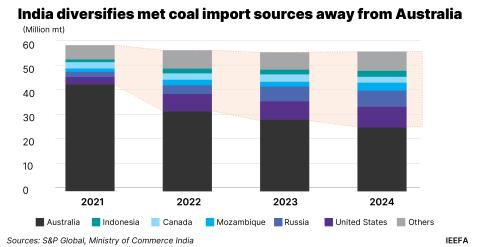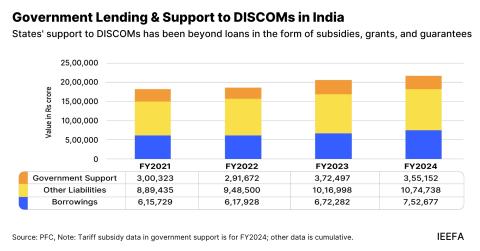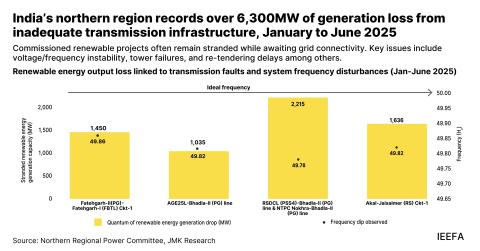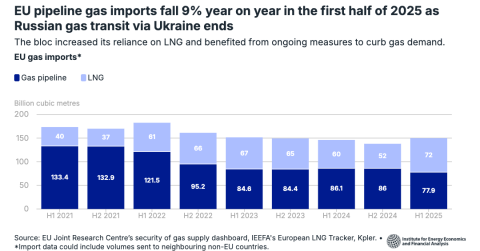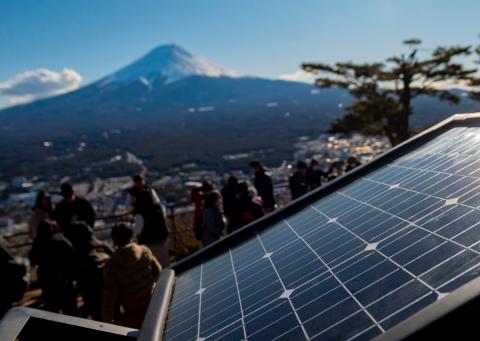IEEFA Report: Privatizing Puerto Rico’s Electric Company Would Be an Impediment to Modernization
Link to Spanish-language press release
April 13, 2018 (IEEFA)— The Legislative Assembly of Puerto Rico would be acting in the public’s best interest by blocking a proposed privatization of the Puerto Rico Electric Power Authority, a new report by the Institute for Energy Economics and Financial Analysis concludes.
The report — “Privatization Bill Will Not Solve Puerto Rico’s Electricity Crisis” — describes how a privatization program promoted by Gov. Ricardo Rosselló lacks transparency, ensures inadequate regulation of PREPA, would serve as a barrier to construction of a true 21st-century power system, and would undermines the very economy of Puerto Rico.
“We recommend the legislature reject this bill,” said Cathy Kunkel, an IEEFA energy analyst and co- author of the report with IEEFA director of finance Tom Sanzillo. “While PREPA’s management requires reform, this can and should be done without privatizing PREPA’s assets.”
Kunkel said, “The proposed law will not achieve its goals of modernizing Puerto Rico’s electrical system because it does not address the fundamental drivers of the high price of electricity on the island: fossil fuel dependency, debt, declining demand, mismanagement, and ongoing political interference at PREPA.”
The legislature today holds the third in a series public hearings on Rosselló’s privatization bill (P.S. 860 in the Senate and P.C. 1481 in the House). The fourth and final hearing is April 17. The measure comes in response to the failure last year of Puerto Rico’s electricity system in the wake of Hurricane Maria.
The bill effectively cancels Puerto Rico’s legislatively-mandated integrated resource plan and renewable energy mandate. It allows instead for natural gas, coal, incineration and renewable energy projects to be developed haphazardly through processes that will likely result in a reckless overbuilding of the electrical system that Puerto Rico cannot afford.
The IEEFA report details also how the Rosselló plan stands to retard the development of microgrids that would help make PREPA more resilient to hurricanes. It would expose ratepayers — residential and business customers alike — to higher electricity bills and PREPA employees to job-security uncertainty. It is silent on PREPA’s core financial problems, even though the utility is hobbled by its $9 billion debt to bondholders.
IEEFA recommends that PREPA modernization include the following:
- A commitment to sound energy planning that takes into account the cost-effectiveness of renewable energy, energy efficiency and demand response.
- A plan to retire outdated oil-fired power plants, an acknowledgment that electricity demand is falling, and an assertive policy decision around the potential for microgrids and rooftop solar.
- Elimination of PREPA’s legacy debt and acceptance of strong, independent regulation that demands transparency and accountability.
- Partnerships with labor unions in the modernization of the island’s electrical system.
“The Rosselló bill is designed only to effectuate the sale of PREPA’s assets to private third parties, without any clear vision of how this would result in a more sustainable and affordable energy mix, lower debt burden, or reduced political interference in the electric system,” the report concludes.
Full report: “Privatization Bill Will Not Solve Puerto Rico’s Electricity Crisis”
Full report in Spanish: “El proyecto de privatización no resolverá la crisis eléctrica de Puerto Rico”
Media contacts:
Karl Cates [email protected] 917 439 8225
Or Kate Sopko [email protected] 216 388 3457





